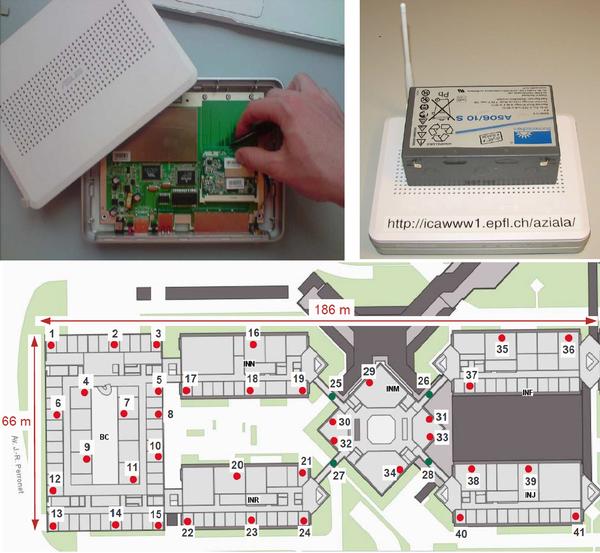Asea Brown Boveri Ltd. (ABB) Award 2012 - Adel Aziz

© 2012 EPFL
Bringing Stability to Wireless Mesh Networks. Thesis EPFL, n° 4960 (2011). Dir.: Patrick Thiran.
"For having shown theoretically and experimentally the problems of instability of a large class of wireless mesh networks, and for having brought an efficient practical solution called EZ-flow."
Abstract: Wireless mesh networks were designed as a mean to rapidly deliver large-scale communication capabilities without the support of any prior infrastructure. The properties of this technology bring connectivity to uncovered areas, such as in developing countries or in emergency situations after a natural disaster, for example. To fully leverage the possibilities of mesh networks, the scheduling decision needs to be performed in a distributed manner at each node of the network. Hence, most of the current mesh deployments are based on the IEEE 802.11 protocol, even if it was not designed for multi-hop communications.
The main goals of this thesis are (i) to understand and model the behavior of IEEE 802.11-based mesh networks in order to identify the root causes that lead to congestion and network instability; (ii) to develop and deploy a large-scale experimental infrastructure in order to validate with measurements both the problems and the solutions discussed in this thesis; (iii) to build efficient hop-by-hop scheduling schemes that provide congestion control and inter-flow fairness in a practical and backward-compatible way; and (iv) to explain the non-monotonic relation between the end-to-end throughput and the source rate with a model that demonstrates the rationale behind this artifact.
